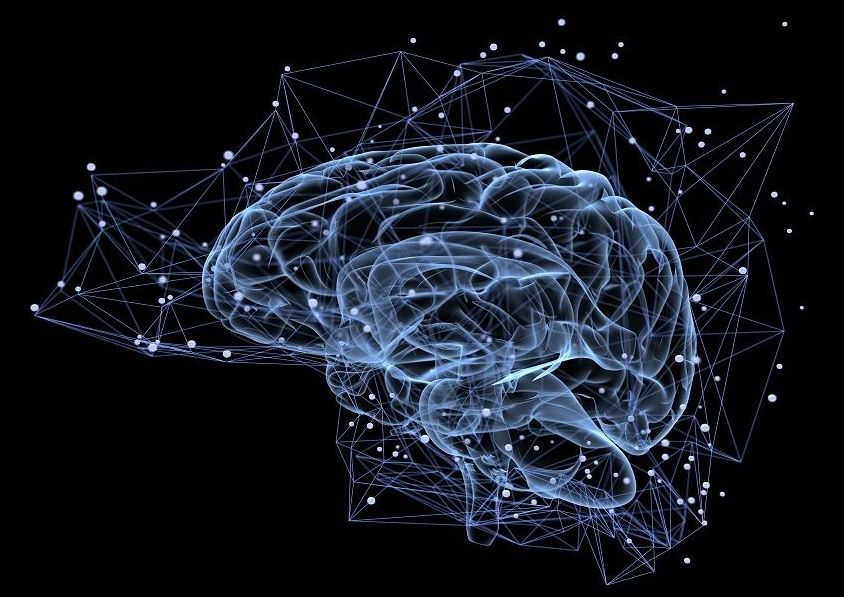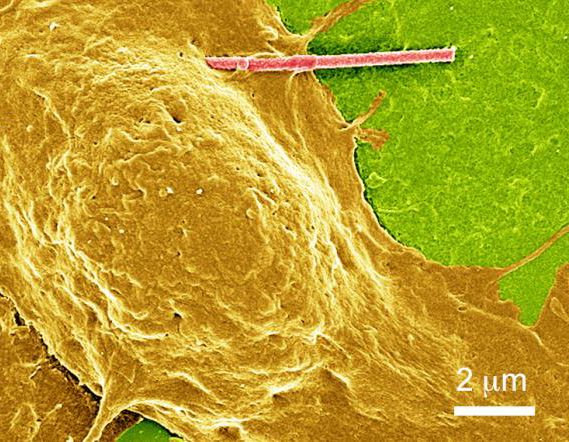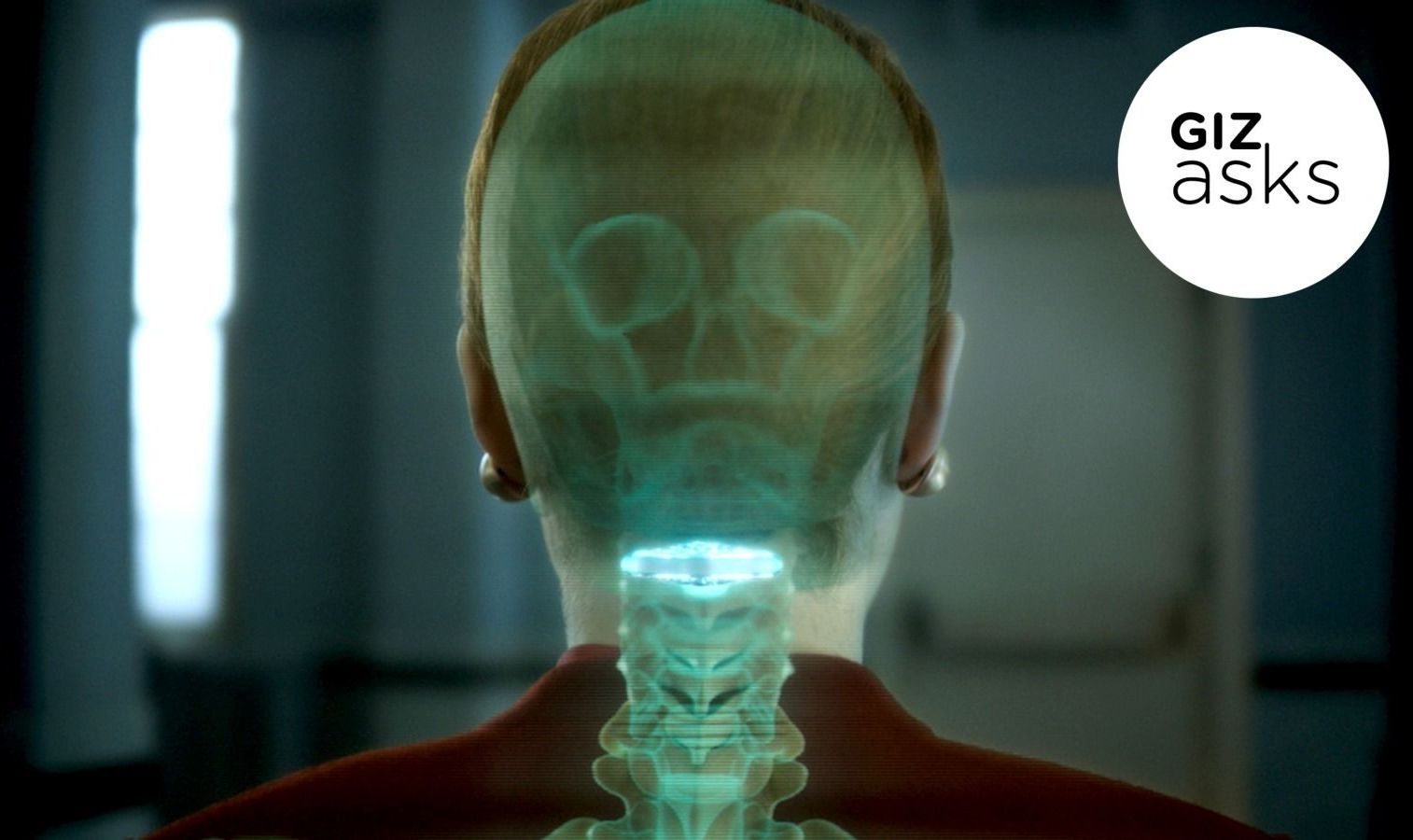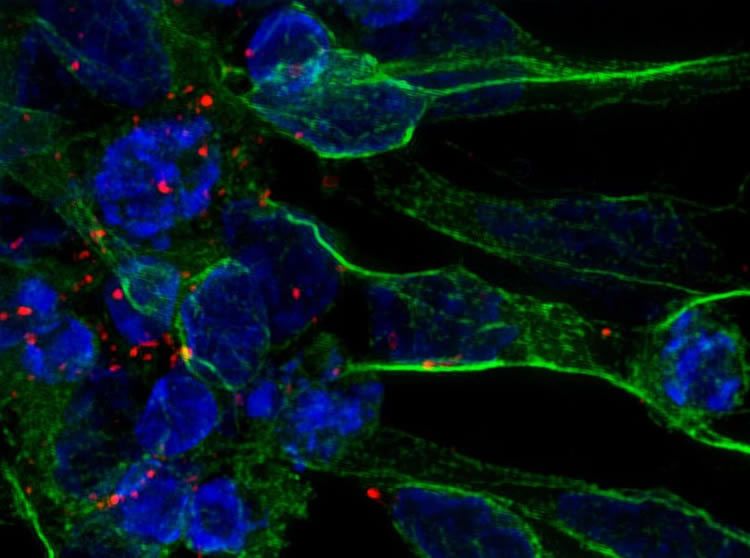Neuroscientists have devised a new method of “mind-reading” technology that recreates images perceived by the human brain based on EEG readings.
Category: neuroscience – Page 1,188

Brain rejuvenating protein found in young blood
Summary: UCSF scientists discover a protein in young blood that rejuvenates an aging brain. [This article first appeared on LongevityFacts. Author: Brady Hartman. ]
Scientists have long been searching for the factors in young blood that give it its rejuvenating powers to drug form for widespread public use.
A team of researchers led by Saul Villeda, Ph.D., an assistant professor of anatomy at UC San Francisco discovered a brain-rejuvenating enzyme that improved memory in adult mice when restored to youthful levels. The researchers say the new protein could lead to new therapies for maintaining the healthy brain function of humans.

Tiny Light-Activated Gold-Covered Nanowires Can Make Neurons Fire
Researchers at the University of Chicago have developed light-activated nanowires that can stimulate neurons to fire when they are exposed to light. The researchers hope that the nanowires could help in understanding complex brain circuitry, and they may also be useful in treating brain disorders.
Optogenetics, which involves genetically modifying neurons so that they are sensitive to a light stimulus, has attracted a lot of attention as a research tool and potential therapeutic approach. However, some researchers have misgivings about optogenetics, as it involves inserting a gene into cells, potentially opening the door to unforeseen effects and possibly permanently altering treated cells.
In an effort to develop an alternative, a research team at the University of Chicago has devised a new modality that can enable light activation of neurons without the need for genetic modification. Their technique involves nanowires that are so small that if they were laid side-by-side, hundreds of them would fit on the edge of a sheet of paper. Although initially designed for use in solar cells, their small size also makes them well suited to interacting with cells.

Do you see what I see? Researchers harness brain waves to reconstruct images of what we perceive
A new technique developed by neuroscientists at the University of Toronto Scarborough can, for the first time, reconstruct images of what people perceive based on their brain activity gathered by EEG.
The technique developed by Dan Nemrodov, a postdoctoral fellow in Assistant Professor Adrian Nestor’s lab at U of T Scarborough, is able to digitally reconstruct images seen by test subjects based on electroencephalography (EEG) data.
“When we see something, our brain creates a mental percept, which is essentially a mental impression of that thing. We were able to capture this percept using EEG to get a direct illustration of what’s happening in the brain during this process,” says Nemrodov.



Will We Ever Be Able to Upload a Mind to a New Body?
The Netflix series takes place hundreds of years in the future, but references versions of technology that have been in development for years, like brain mapping, human and AI neural links, and mind uploading to computers. Millions of dollars has been bumped into technological ideas that promise, one day, our brains will be turned digital. That said, there are those who believe the human mind is too complex, and our consciousness too nuanced, to be recreated in a digital product. And none of that even goes into what would happen if someone’s digitized mind was placed into real human flesh.
Will we ever be able to upload our minds into other bodies? Furthermore, should we? And honestly, if we ever achieved such a feat, could we even call ourselves human anymore? On this week’s Giz Asks, we reached out to experts in neuroscience, philosophy and futurism.


Stem Cell Based Stroke Treatment Repairs Brain Tissue
Summary: A new treatment that uses extracellular vesicles filled with exosomes derived from human stem cells could help repair brain damage following stroke, researchers report.
Source: University of Georgia.
A team of researchers at the University of Georgia’s Regenerative Bioscience Center and ArunA Biomedical, a UGA startup company, have developed a new treatment for stroke that reduces brain damage and accelerates the brain’s natural healing tendencies in animal models. They published their findings in the journal Translational Stroke Research.